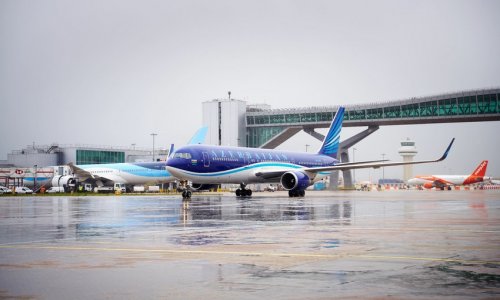In no time, however, that shock turned to envy, as founders with impending IPO valuations of “just” $2 billion started to feel much less impressed with themselves. In a flash, what once seemed so great somehow began to feel depressing.Is that what has become of entrepreneurs in the modern era? Not exactly. We all are prey to precisely the same logic, regardless of what we do for a living.I don’t want to lead a team where everyone meets their targets all the time, because it almost certainly means those goals are too modest. We constantly reassess how we are doing in life relative to our expectations and the expectations of others. There is no such thing as “objective” performance; instead, we regularly engage in a social comparison process that weighs our performance relative to benchmarks. Our going-in expectations also sway how much we enjoy movies and books, how we evaluate the quality of products, even how we evaluate how well our workplace adapts to change.Yet some of the most successful people and organisations in the world are those that embrace surprise. Embracing, rather than fearing, the unexpected is a key to really getting ahead, as well as being smarter and more adaptable.The downside to expectationsTo see how those set expectations can poison an experience, let’s start with cars. New owners of the Mini Cooper are now rating the once chart-topping car near the bottom of the league table, according to the latest JD Power survey results? How could that be?It turns out that the very success of the Mini created huge demand from people who previously owned only larger cars. Those people — the new owners now being surveyed — have found themselves surprised at how tiny the Mini really is!Compared to what these owners were used to, the Mini was a disappointment.Movies are much the same way. Many times I have been hyped up for a movie only to see it and wonder what the fuss was about. On occasion I’ve actually been angry after the fact about the stellar reviews that preceded my viewing. In those cases, I was an even harsher critic of the film than if I had gone in without preconceptions.It’s not just me. In a study of books that either won or were short-listed for prominent book awards between 2007 and 2011, reader ratings actually went down after the announcement of the awards even though more people bought those books.Could it be that many of us hold award-winning books to a higher standard, and if we find them lacking we come down hard on them?Prisoner of the pastThe power of history and expectations also plays out in the C-suite of top companies. For instance, why is it that incumbent firms are often slow to adapt to big changes in their marketplace? No doubt arrogance and complacency play a role. But it might also be that leaders in these companies believe they are making big changes because, relative to their expectations for how the business is supposed to run, they have adjusted.Companies less beholden to past expectations and assumptions — start-ups or companies from outside the industry — do not suffer from this self-imposed constraint and tend to be much more aggressive in adapting to change.This is a big insight into why leaders struggle with change and points out how each of us may be unavoidably captive to our past.Another reason firms are slow to adapt? Fear of surprise. Companies are particularly attuned to anything which might jar their reliance on expectations. How they handle a shock is also tied to their frame of reference.We are attuned to surprise because we usually face so little. People have a remarkable ability to become accustomed to whatever becomes the norm in their lives. We move to a new house, we’re thrilled beyond belief for a time, but then inexorably we fall into our routine, which includes going home to the same place day after day.Happiness researchers have noticed this for years, coming to the somewhat depressing conclusion that the positive feelings that arise when we get new stuff all too quickly dissipates.TakeawaysFor managers, there are three important takeaways. First, focus on surprises — large and small — for the information it can reveal about what we are doing. The great management scholar Henry Mintzberg once said that managers should only pay attention to the unexpected. Imagine how much free time would open up if we really followed that advice?Second, unexpected events or outcomes are not necessarily bad. Of course, it’s hard for most people to consider that as true since our desire for stability and certainty can be overwhelming (and maybe that’s why our brains have adopted accelerated depreciation schedules for even happy events, like that new house). So, rather than attack surprises with everything we’ve got so they go away quickly, we should assess the unanticipated for what it might reveal. Yes, even when things don’t go the way we planned, it can still be valuable for what it might teach us.Finally, there is also value in monitoring the volume of surprises that emerge at work. For example, while you might want to pat yourself on the back if few unforeseen events crop up, it might be because your expectations are too low. I don’t want to lead a team where everyone meets their targets all the time, because it almost certainly means those goals are too modest.The point: don’t fool yourself into believing all is well when it might not be. Monitoring the volume of unexpected events — surprises — is one way to calibrate real performance.How we react to the unexpected — the surprises in life — may well have a lot to do with our success and our happiness, whether we’re going to the movies or leading a business, or being unwilling to let a $19bn payday for a social networking start-up take us off our own game.(BBC)ANN.Az
The strange psychology of expectations
Society
10:45 | 06.03.2014

The strange psychology of expectations
When Facebook announced its astounding $19bn takeover of 55-employee WhatsApp, entrepreneurs in Silicon Valley and other tech startup hubs around the world were shocked.
Follow us !










